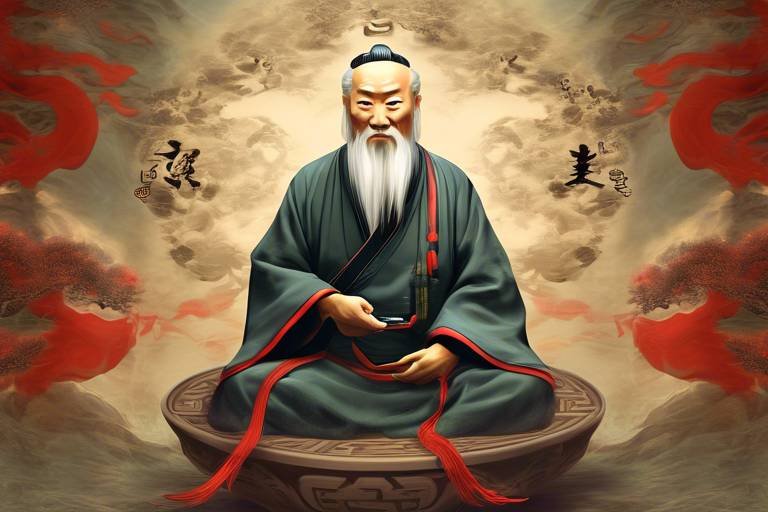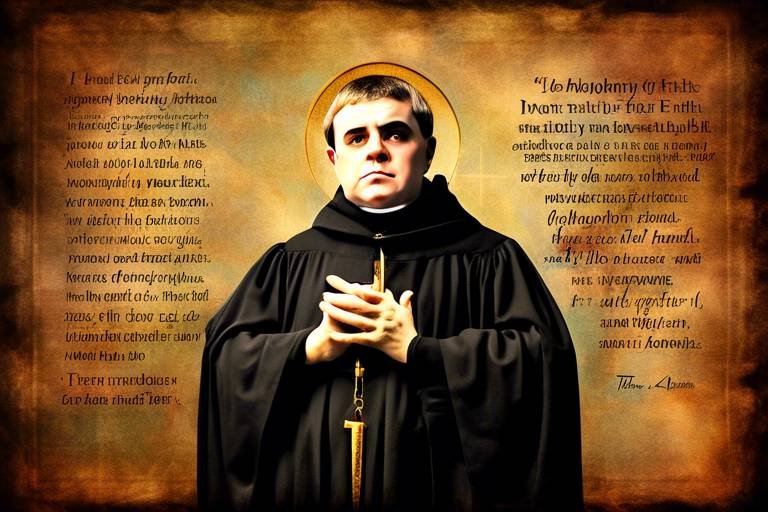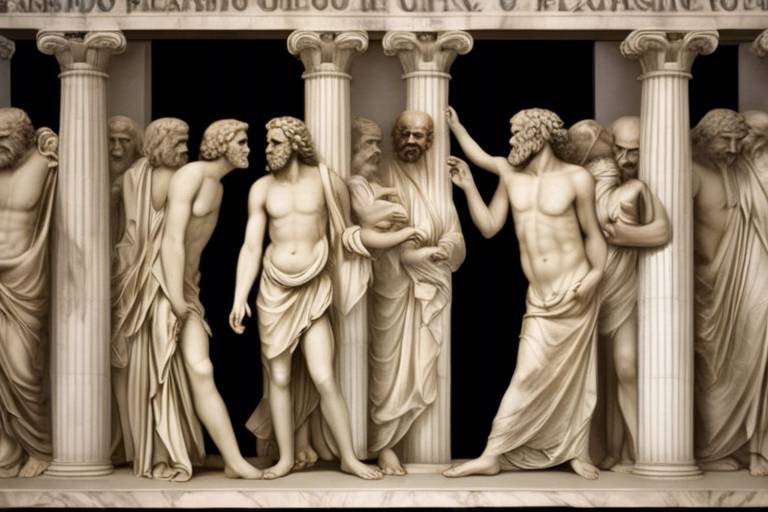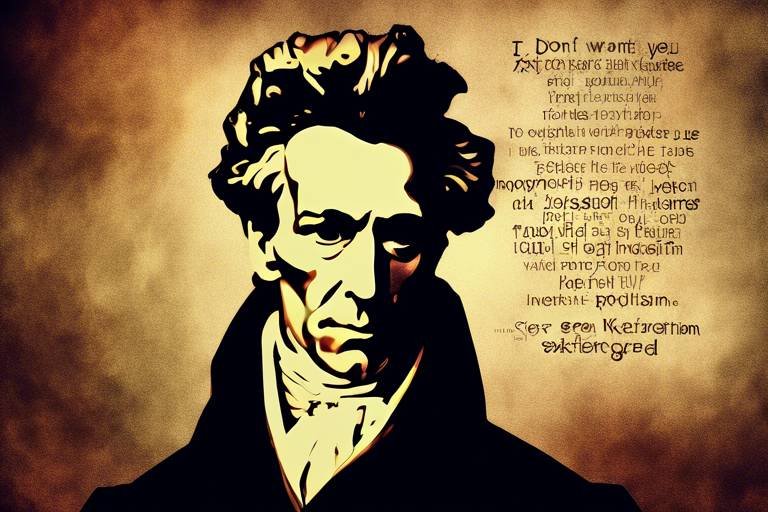Voltaire's Views on Religion and Rationalism
Voltaire, one of the most influential figures of the Enlightenment, had a profound impact on the way we think about religion and rationalism. His writings are a treasure trove of insights that challenge the status quo and push for a more enlightened understanding of human existence. Can you imagine a world where questioning beliefs is not just accepted but celebrated? Voltaire envisioned such a world, where the light of reason would shine brightly against the shadows of dogma and superstition. In this article, we will delve into Voltaire's critiques of religious dogma, his advocacy for freedom of thought, and the vital role of reason in shaping society.
At the core of Voltaire's philosophy was a fierce critique of religious dogma. He believed that rigid beliefs not only stifle intellectual growth but also foster intolerance. To Voltaire, dogma was like a heavy fog that obscured the path to enlightenment, making it difficult for individuals to see the truth. He often posed rhetorical questions to challenge the established doctrines of his time, urging people to think critically and question the validity of their beliefs. For him, the act of questioning was not just a right; it was a necessity for progress and enlightenment.
Voltaire was a staunch advocate for freedom of thought. He argued that every individual should have the liberty to express their beliefs without the fear of persecution. This principle was central to his philosophy and writings. Imagine living in a society where your thoughts could lead to imprisonment or worse! Voltaire fought against such injustices, emphasizing that true progress can only occur when people are free to explore ideas without constraints. He famously stated, “I disapprove of what you say, but I will defend to the death your right to say it.” This quote encapsulates his unwavering belief in the importance of free expression.
One of Voltaire's key arguments was for a clear separation between church and state. He believed that religious institutions should not interfere in political matters, as this interference could lead to the erosion of individual liberties and rational governance. Voltaire envisioned a society where laws and policies are dictated by reason rather than religious dogma. This separation is vital for ensuring that all citizens, regardless of their beliefs, can participate in the political process without discrimination. It’s like having a referee in a game; without them, chaos would reign.
Voltaire's ideas laid the groundwork for modern secularism. He emphasized the need for a society where religious beliefs do not dictate laws or public policy, fostering an environment of rational discourse. In today's world, we see the fruits of his labor as many countries strive for a secular government that respects diverse beliefs while maintaining a neutral stance on religion. This allows for a more inclusive society, where people can coexist despite their differences.
Voltaire often criticized the hypocrisy he perceived within religious institutions. He pointed out how they sometimes contradicted their own teachings, undermining their moral authority and credibility. For instance, he highlighted the irony of religious leaders preaching love and compassion while engaging in acts of violence and intolerance. This hypocrisy, he argued, not only tarnished the image of religion but also alienated individuals who might otherwise seek spiritual solace.
For Voltaire, reason was the cornerstone of human progress. He believed that rational thought should guide ethical decisions and societal norms, challenging the reliance on superstition and blind faith. In his view, reason was like a compass, helping humanity navigate the complexities of life. He implored people to embrace reason as a tool for understanding the world around them, encouraging them to question everything—from the nature of existence to the validity of their beliefs.
Voltaire's views significantly influenced Enlightenment thinkers, promoting the idea that reason and scientific inquiry could lead to societal improvement and the advancement of human rights. His writings inspired a generation of philosophers, scientists, and activists who sought to challenge oppressive systems and advocate for individual freedoms. This ripple effect of his thoughts can still be felt today, as we continue to grapple with issues of freedom, equality, and justice.
Voltaire's legacy extends beyond his time; his writings continue to inspire debates about religion and rationalism. They reflect his enduring impact on both literature and philosophy, where critical thinking remains paramount. His sharp wit and incisive critiques serve as a reminder of the importance of questioning authority and seeking truth. In a world filled with misinformation, Voltaire's call for reason and rational discourse is more relevant than ever.
Voltaire's ideas about religion and rationalism resonate deeply in contemporary society. As we grapple with issues of faith, reason, and the role of belief systems in public life, his insights serve as a guiding light. Can we truly achieve progress without questioning our beliefs? Voltaire would argue that we cannot. His thoughts encourage us to engage in meaningful conversations, challenge dogmas, and advocate for a world where reason prevails over blind faith.
- What was Voltaire's main critique of religion?
Voltaire criticized religious dogma for stifling intellectual growth and promoting intolerance. - How did Voltaire advocate for freedom of thought?
He believed individuals should express their beliefs freely without fear of persecution. - What is the significance of the separation of church and state?
This separation ensures that religious beliefs do not dictate laws or public policy, fostering a more rational and inclusive society. - How has Voltaire influenced modern secularism?
His ideas laid the groundwork for secular governance, emphasizing the importance of reason in public life.
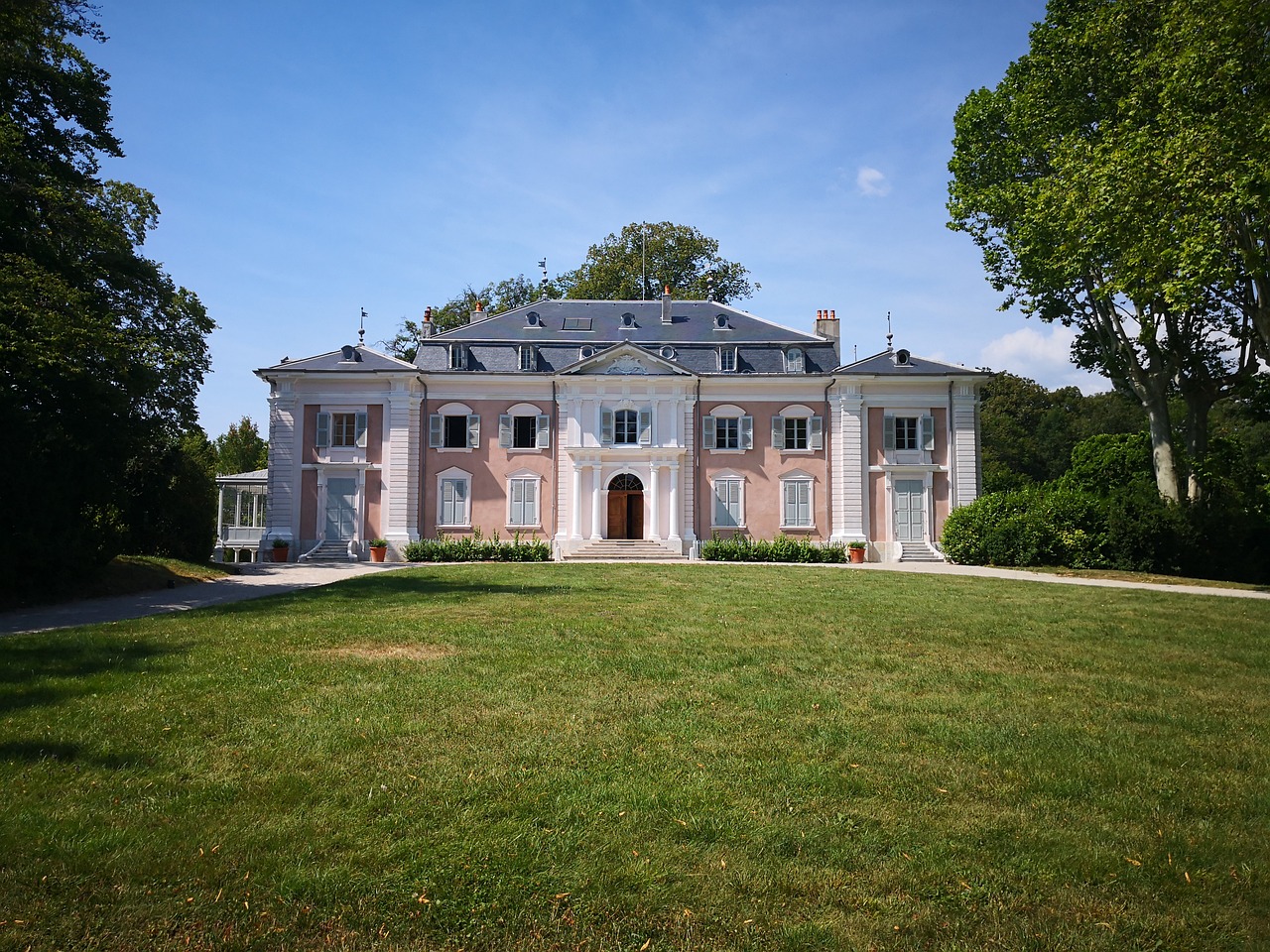
Critique of Religious Dogma
Voltaire was a fierce critic of religious dogma, and his arguments against it are as relevant today as they were in the 18th century. He believed that rigid beliefs often stifle intellectual growth and promote an atmosphere of intolerance. Imagine a world where every question is met with a resounding "no" simply because it challenges the status quo; this is the world Voltaire sought to dismantle. He championed the notion that questioning established doctrines is not just a right but a necessity for progress and enlightenment.
In his works, Voltaire often pointed out that dogmatic beliefs can lead to a kind of mental paralysis. When individuals are taught to accept certain truths without question, they become less likely to engage in critical thinking. This is akin to a bird being kept in a cage; it may exist, but it will never soar. Voltaire argued that true knowledge comes from inquiry and skepticism, which are essential components of a healthy society. He famously stated, "Doubt is not a pleasant condition, but certainty is an absurd one," encapsulating his belief that a degree of uncertainty is crucial for intellectual development.
Voltaire's critiques extended beyond mere philosophical musings; he actively engaged with the societal implications of religious dogma. He observed how dogmatic beliefs often fueled conflict and violence, leading to wars and persecution. In a world where people are divided by their beliefs, Voltaire advocated for a more harmonious existence, one that could only be achieved through the freedom to question and the embrace of rational thought.
To further illustrate his point, Voltaire often pointed to historical events where religious dogma led to dire consequences. The Inquisition, for example, was a dark chapter in history where individuals were persecuted for their beliefs, often resulting in torture and death. Voltaire used such examples to argue that when religion becomes intertwined with power, it can corrupt and lead to a society where fear triumphs over reason.
Ultimately, Voltaire's critique of religious dogma serves as a reminder of the importance of maintaining a critical perspective on our beliefs. By advocating for a culture of questioning and rational discourse, he laid the groundwork for a society that values freedom of thought and encourages individuals to seek truth rather than accept dogma blindly. As we navigate our own beliefs today, Voltaire's insights urge us to remain vigilant against the perils of unquestioned faith.
- What did Voltaire believe about religious dogma?
Voltaire believed that religious dogma stifled intellectual growth and promoted intolerance, advocating for questioning established doctrines. - How did Voltaire's critiques influence society?
His critiques encouraged a culture of freedom of thought and rational discourse, which laid the groundwork for modern secularism. - What are some historical examples Voltaire used to critique dogma?
He often referenced events like the Inquisition to illustrate the dangers of intertwining religion with power.
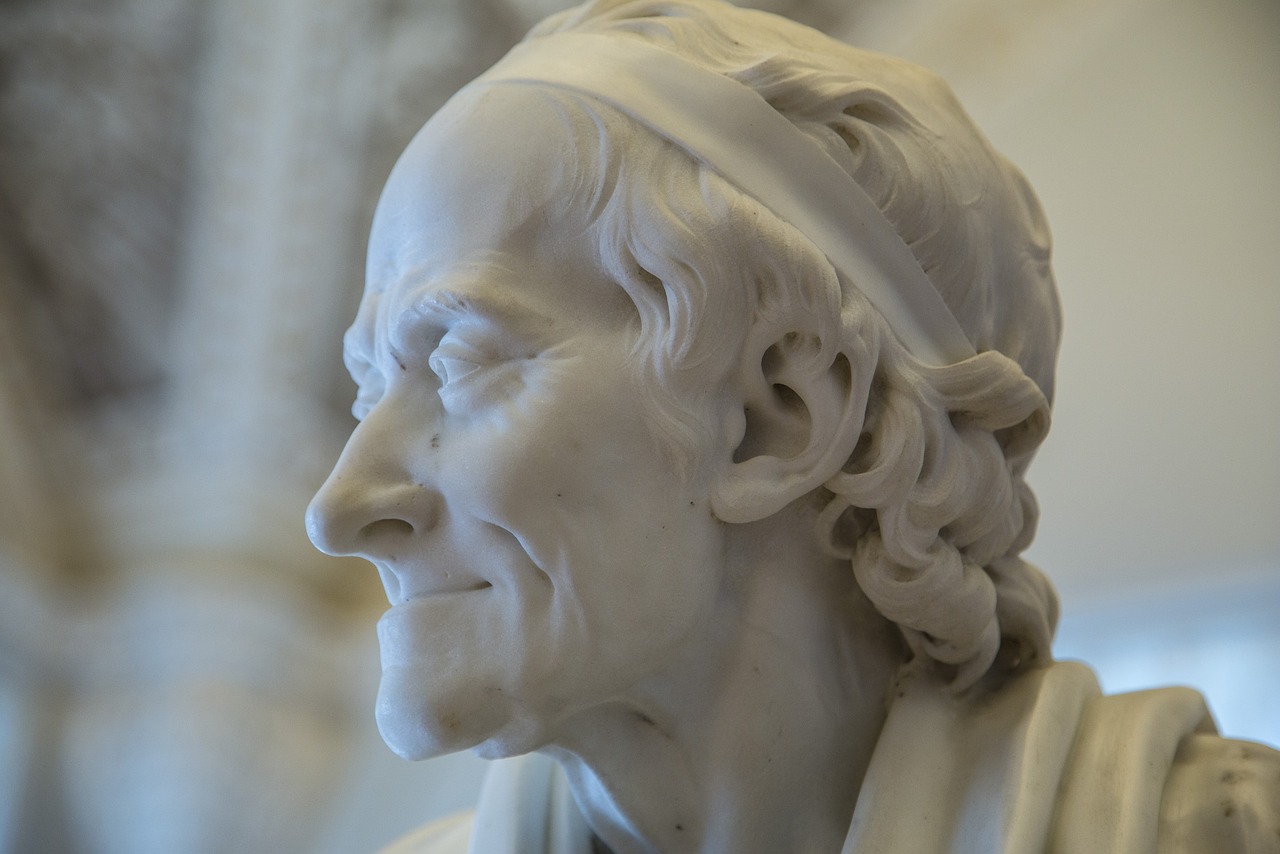
Advocacy for Freedom of Thought
Voltaire was not just a thinker; he was a revolutionary voice in the realm of freedom of thought. His writings often emphasized that the ability to express one’s beliefs freely is a fundamental human right. Imagine living in a world where your thoughts could lead to persecution or punishment—this was the reality for many during Voltaire's time. He fervently argued that individuals should not only have the right to their own beliefs but also the freedom to question and critique those beliefs without fear of retribution. This idea resonates deeply in today's society, where freedom of expression is still a contentious issue.
Voltaire's advocacy for freedom of thought was rooted in his broader philosophy of rationalism. He believed that reason should be the guiding principle in human affairs, allowing individuals to arrive at their own conclusions rather than blindly following dogma. In his view, the pursuit of knowledge and understanding was essential for societal progress. He often remarked, “Doubt is not a pleasant condition, but certainty is absurd,” highlighting the importance of questioning established norms.
In his essays and letters, Voltaire championed the idea that the freedom to think is crucial for a healthy society. He argued that when people are free to express their ideas, it leads to a vibrant exchange of thoughts that can spark innovation and progress. This exchange is not just beneficial but necessary for the evolution of ideas. Voltaire’s thoughts on this matter can be summarized in several key points:
- Critical Thinking: He believed that critical thinking should be encouraged, allowing individuals to analyze and evaluate different perspectives.
- Intellectual Freedom: Voltaire posited that intellectual freedom is vital for the development of a just society.
- Challenge Authority: He urged individuals to challenge authority and question the status quo, which is essential for any form of progress.
Moreover, Voltaire's commitment to freedom of thought extended beyond mere advocacy; he actively participated in debates and discussions that promoted these ideals. His famous quote, “I disapprove of what you say, but I will defend to the death your right to say it,” encapsulates his unwavering support for free speech. This principle remains a cornerstone of modern democratic societies, illustrating how Voltaire's legacy continues to influence contemporary discussions about freedom of expression.
In essence, Voltaire's advocacy for freedom of thought was not just about allowing people to express opinions; it was about fostering an environment where intellectual curiosity could thrive. By promoting the idea that individuals should be free to explore and articulate their beliefs, he laid the groundwork for a more enlightened society. His thoughts serve as a reminder that the pursuit of knowledge and the right to express differing viewpoints are vital components of human progress.
- What is Voltaire's main argument for freedom of thought?
Voltaire argued that freedom of thought is essential for intellectual growth and societal progress, allowing individuals to question and critique established norms without fear of persecution. - How did Voltaire's ideas influence modern society?
His advocacy for freedom of thought laid the groundwork for contemporary discussions on free speech and individual rights, influencing democratic principles around the world. - What was Voltaire's stance on religious beliefs?
Voltaire criticized religious dogma and hypocrisy, promoting the idea that reason and rational thought should guide ethical decisions rather than blind faith.
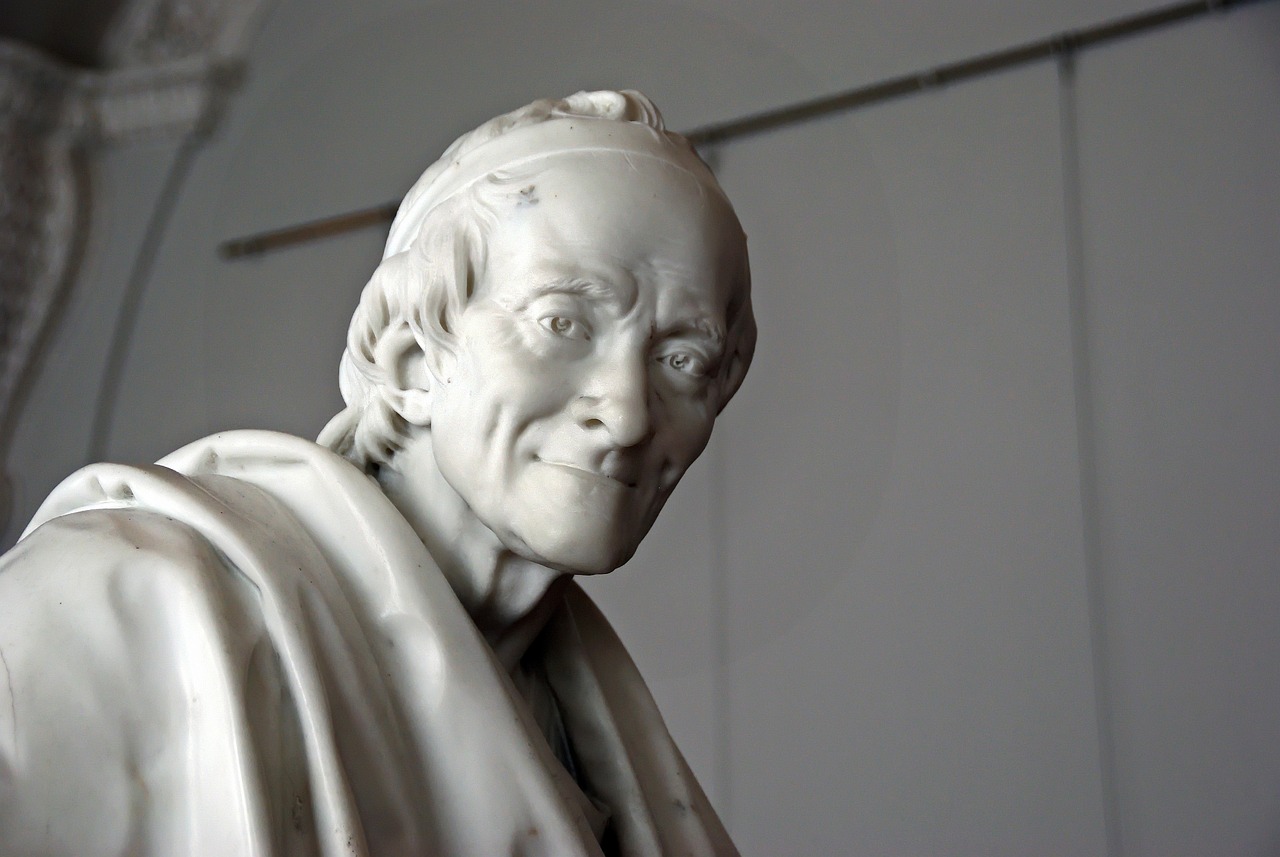
Separation of Church and State
Voltaire was a staunch advocate for the , a principle that remains crucial in contemporary discussions about governance and religion. He believed that when religious institutions wield political power, it can lead to a myriad of societal issues, including oppression, intolerance, and the stifling of individual freedoms. In Voltaire's view, a clear demarcation between these two spheres was not just ideal but essential for a thriving, rational society.
Imagine a world where your beliefs dictated your rights, where a person's faith could determine their legal standing or their ability to participate in civic life. This was the reality Voltaire sought to challenge. He argued that the intertwining of religious authority and governmental power often resulted in dogmatism and fanaticism, which could suppress dissenting voices and marginalize those who did not conform to the dominant faith. By advocating for a separation, Voltaire envisioned a society where individuals could freely express their beliefs without fear of retribution from either the church or the state.
Voltaire's writings often highlighted the dangers of allowing religious institutions to influence political decisions. He pointed out that when laws are based on religious tenets, they can become outdated and irrelevant to the diverse needs of a society. For instance, he believed that morality should not be dictated by religious dogma but should instead be rooted in human reason and empathy. This perspective was revolutionary at the time and laid the groundwork for modern secular governance.
To illustrate his point, consider the following benefits of separating church and state:
- Enhanced Individual Freedoms: Citizens can practice their faith freely without governmental interference or favoritism.
- Promotion of Pluralism: A diverse society can coexist peacefully when no single religion dominates the political landscape.
- Rational Governance: Laws can be based on reason and evidence rather than religious beliefs, leading to more effective policies.
Voltaire's advocacy for this separation also called for critical thinking and skepticism towards authority, whether it be religious or political. He believed that a rational populace would challenge injustices and demand accountability from their leaders. This idea resonates strongly in today's society, where the separation of church and state is often seen as a safeguard against tyranny and discrimination.
In summary, Voltaire's arguments for the separation of church and state were not merely theoretical; they were a clarion call for a society grounded in reason, tolerance, and freedom. His insights remind us that for a democracy to flourish, it must protect the rights of individuals to believe—or not believe—without the interference of governmental or religious authority.
- What did Voltaire mean by the separation of church and state? Voltaire believed that religious institutions should not have power over political matters, ensuring that individuals could freely express their beliefs without interference.
- Why is the separation of church and state important? It protects individual freedoms, promotes pluralism, and allows for rational governance based on evidence rather than religious beliefs.
- How did Voltaire's views influence modern secularism? His advocacy laid the groundwork for contemporary secular governance, emphasizing that laws should not be dictated by religious tenets.
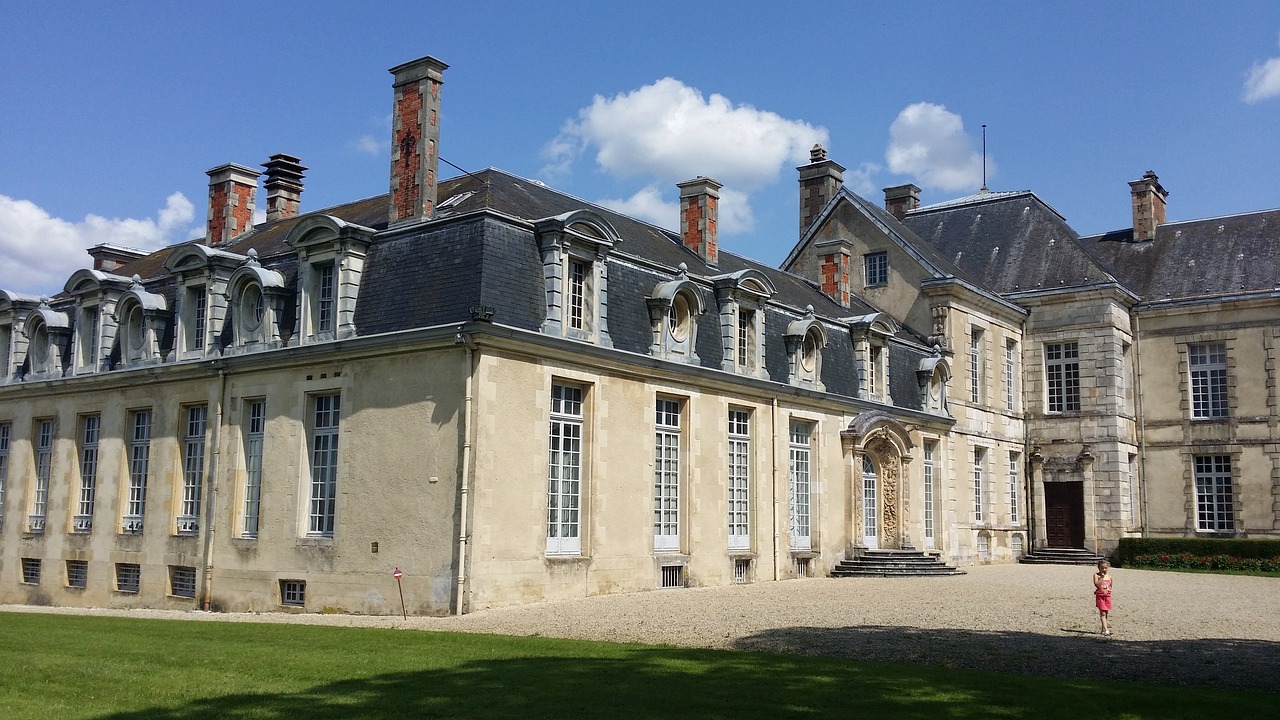
Influence on Modern Secularism
Voltaire's thoughts on religion and rationalism have had a profound impact on the development of modern secularism. He envisioned a society where religious beliefs would not encroach upon the rights and freedoms of individuals. This idea was revolutionary for his time and has become a cornerstone of contemporary democratic societies. By advocating for a clear distinction between church and state, Voltaire laid the groundwork for a framework where governance is based on reason rather than dogma.
One of the key aspects of Voltaire's influence is his belief that a secular state is essential for individual liberty. When religious institutions are allowed to dictate laws or influence political decisions, it can lead to oppression and discrimination against those who hold different beliefs. Voltaire argued that true freedom could only be achieved when people are free to think, question, and believe without the fear of persecution. This notion resonates strongly in today’s discussions about the role of religion in public life.
Moreover, Voltaire's critiques of religious hypocrisy and dogma encouraged a culture of critical thinking. He believed that when individuals are encouraged to question established norms, they can foster a more open and tolerant society. This idea has been pivotal in shaping modern secularism, which promotes the idea that laws and policies should be based on reason and empirical evidence rather than religious doctrines.
To illustrate the impact of Voltaire's ideas on modern secularism, consider the following table that outlines key principles:
| Principle | Description |
|---|---|
| Separation of Church and State | Ensures that religious institutions do not influence political decisions. |
| Freedom of Thought | Encourages individuals to express their beliefs without fear of persecution. |
| Critical Inquiry | Promotes questioning and rational discourse over blind faith. |
| Empirical Evidence | Advocates for laws and policies grounded in scientific understanding. |
Today, Voltaire's influence is evident in various aspects of society, from legal frameworks to educational systems. His advocacy for a rational approach to governance has inspired movements around the world that seek to promote human rights and social justice. In essence, Voltaire's legacy is a call to embrace reason and ensure that faith does not overshadow our collective pursuit of knowledge and understanding.
- What is secularism? Secularism is the principle of separating religion from political, social, and educational institutions, ensuring that religious beliefs do not influence governance.
- How did Voltaire influence secularism? Voltaire's critiques of religious dogma and his advocacy for freedom of thought laid the groundwork for modern secular principles, emphasizing reason over faith in governance.
- Why is the separation of church and state important? This separation is crucial to protect individual freedoms and ensure that laws are based on rational thought rather than religious beliefs, promoting a more just society.
- Are Voltaire's ideas still relevant today? Yes, Voltaire's ideas continue to resonate as contemporary societies navigate the complexities of faith, reason, and public policy.

Criticism of Religious Hypocrisy
Voltaire was not one to shy away from pointing out the glaring inconsistencies present within religious institutions. He often lampooned the hypocrisy he observed, where the actions of religious leaders and followers contradicted the very principles they preached. This contradiction, he argued, not only undermined the moral authority of these institutions but also led to a profound disillusionment among the populace. For Voltaire, the essence of religion should be rooted in compassion, justice, and truth, yet he frequently witnessed a stark divergence from these ideals.
One of the most striking examples Voltaire highlighted was the tendency of religious figures to indulge in the same vices they publicly condemned. This duality created a culture of cynicism among the masses, who began to question the sincerity of religious teachings. He believed that when those in power fail to practice what they preach, it not only damages their credibility but also fosters a sense of intolerance and division within society. In essence, Voltaire argued that hypocrisy within religion breeds conflict, as it creates a disconnect between the ideals of faith and the reality of human behavior.
Moreover, Voltaire was particularly critical of the dogmatic adherence to rituals and traditions that often overshadowed the core values of love and understanding. He posited that when religious institutions prioritize their own preservation over the well-being of individuals, they lose sight of their true purpose. This critique of hypocrisy extended beyond mere observation; it was a clarion call for reform. He sought to awaken the masses to the importance of questioning authority and demanding accountability from those who claim to represent divine will.
In his writings, Voltaire often employed sharp wit and satire to expose these inconsistencies. His famous quote, “Those who can make you believe absurdities can make you commit atrocities,” encapsulates his belief that blind faith, especially when coupled with hypocrisy, can lead to devastating consequences. He urged society to engage in critical thinking and to challenge the status quo, emphasizing that true faith should inspire actions that align with the principles of reason and humanity.
Ultimately, Voltaire's criticism of religious hypocrisy serves as a reminder that faith should not be a shield for moral failings. Instead, it should be a guiding light that encourages individuals to live authentically and ethically. His legacy encourages us to reflect on the importance of integrity within religious practice and to strive for a world where beliefs are not merely spoken but lived.
- What was Voltaire's main criticism of religion? Voltaire criticized the hypocrisy within religious institutions, arguing that their actions often contradicted their teachings, undermining their moral authority.
- How did Voltaire view the relationship between religion and reason? He believed that reason should guide ethical decisions and societal norms, challenging the reliance on superstition and blind faith.
- What impact did Voltaire have on modern secularism? His advocacy for the separation of church and state laid the groundwork for modern secularism, promoting a society where religious beliefs do not dictate laws or public policy.

Importance of Reason
For Voltaire, reason was not just a tool; it was the very cornerstone of human progress. He believed that rational thought should guide ethical decisions and societal norms, challenging the reliance on superstition and blind faith. Imagine a world where every decision is made with clarity and logic, rather than being clouded by outdated beliefs or emotional impulses. This is the world Voltaire envisioned, where individuals could think freely and critically.
Voltaire argued that the ability to reason is what sets humans apart from other beings. It's our capacity to question and to seek understanding that propels society forward. He often used the metaphor of a candle illuminating a dark room; without reason, we are left in darkness, unsure of our surroundings and susceptible to the whims of others. In contrast, reason allows us to navigate the complexities of life, making informed choices and fostering a sense of personal empowerment.
Moreover, Voltaire understood that reason is essential in the realm of morality. He posited that ethical decisions should not be dictated by dogma but rather by a rational assessment of the consequences of our actions. This perspective is particularly relevant today, as we face numerous ethical dilemmas that require careful thought and consideration. By applying reason, we can strive for a more just and equitable society.
In his writings, Voltaire often emphasized the importance of education as a means to cultivate reason. He believed that when individuals are educated, they are better equipped to think critically and challenge the status quo. This is evident in his advocacy for freedom of thought, which he saw as integral to fostering a society where reason could flourish. In his view, the more people are encouraged to think for themselves, the less likely they are to fall prey to the tyranny of ignorance.
To illustrate this point, consider the following table that outlines how reason can impact various aspects of society:
| Aspect | Impact of Reason |
|---|---|
| Education | Encourages critical thinking and informed decision-making. |
| Politics | Promotes rational governance and the protection of individual liberties. |
| Morality | Guides ethical behavior based on reasoned consequences. |
| Social Issues | Facilitates discussions and solutions based on logical analysis. |
In conclusion, Voltaire's emphasis on the importance of reason serves as a powerful reminder of its role in shaping a better world. By advocating for reason as the guiding principle in our lives, he challenged us to rise above the constraints of dogma and embrace the light of understanding. So, the next time you find yourself faced with a decision or a moral dilemma, ask yourself: Are you relying on reason, or are you allowing outdated beliefs to cloud your judgment?
- What did Voltaire believe about religion?
Voltaire was a critic of religious dogma and advocated for freedom of thought, emphasizing the importance of reason over blind faith. - How did Voltaire influence modern secularism?
His ideas laid the groundwork for a society where religious beliefs do not dictate laws or public policy, promoting rational discourse. - Why is reason important in ethical decision-making?
Voltaire believed that ethical decisions should be guided by rational assessments of consequences rather than by dogma.

Impact on Enlightenment Thought
Voltaire's influence on Enlightenment thought is nothing short of monumental. His sharp critiques of established norms and fervent advocacy for reason and freedom of thought resonated deeply with his contemporaries and laid the groundwork for future thinkers. Imagine a world where blind faith ruled supreme, where questions were met with silence. Voltaire, with his pen as his sword, challenged this status quo, urging society to embrace rationality and question everything. He championed the idea that human progress was inherently tied to the application of reason and critical thinking.
His writings, rich with wit and insight, encouraged others to break free from the shackles of dogma. Voltaire believed that through scientific inquiry and rational discourse, humanity could unlock new realms of understanding. He famously stated, "Doubt is not a pleasant condition, but certainty is absurd." This reflects his belief that skepticism is a vital part of intellectual growth. By questioning established beliefs, individuals could foster a culture that values innovation and progress.
Moreover, the ripple effect of Voltaire's thoughts can be seen in various domains, from politics to ethics. Enlightenment thinkers like Rousseau and Diderot were inspired by his ideas, which emphasized that reason should guide governance and social structures. In fact, Voltaire's advocacy for freedom of expression became a cornerstone of Enlightenment philosophy, promoting the notion that individuals have the right to voice their opinions without fear of retribution. This principle not only shaped political ideologies of the time but also paved the way for modern democratic societies.
To illustrate the profound impact of Voltaire's ideas, consider the following table that summarizes key Enlightenment principles influenced by his work:
| Principle | Description | Voltaire's Contribution |
|---|---|---|
| Rationalism | The belief that reason is the primary source of authority. | Promoted the use of reason over superstition. |
| Empiricism | Knowledge comes from sensory experience. | Encouraged observation and scientific inquiry. |
| Individualism | The importance of the individual and their rights. | Advocated for personal freedom and expression. |
| Secularism | Separation of religion from political and social institutions. | Argued against the influence of the church in governance. |
In summary, Voltaire's legacy is intricately woven into the fabric of Enlightenment thought. His relentless pursuit of truth and justice not only shaped his era but also established a foundation for future generations to build upon. Today, as we navigate complex societal issues, Voltaire's emphasis on reason, skepticism, and individual rights remains profoundly relevant. His call for a society driven by rational discourse rather than dogmatic beliefs continues to inspire those who strive for a world where freedom of thought reigns supreme.
- What were Voltaire's main contributions to Enlightenment thought?
Voltaire contributed significantly through his advocacy for reason, freedom of expression, and the separation of church and state. - How did Voltaire view religion?
He was critical of organized religion, particularly its dogma and hypocrisy, advocating instead for a rational approach to spirituality. - What is the relevance of Voltaire's ideas today?
His ideas on freedom of thought and rational discourse continue to resonate in contemporary discussions about individual rights and secular governance.
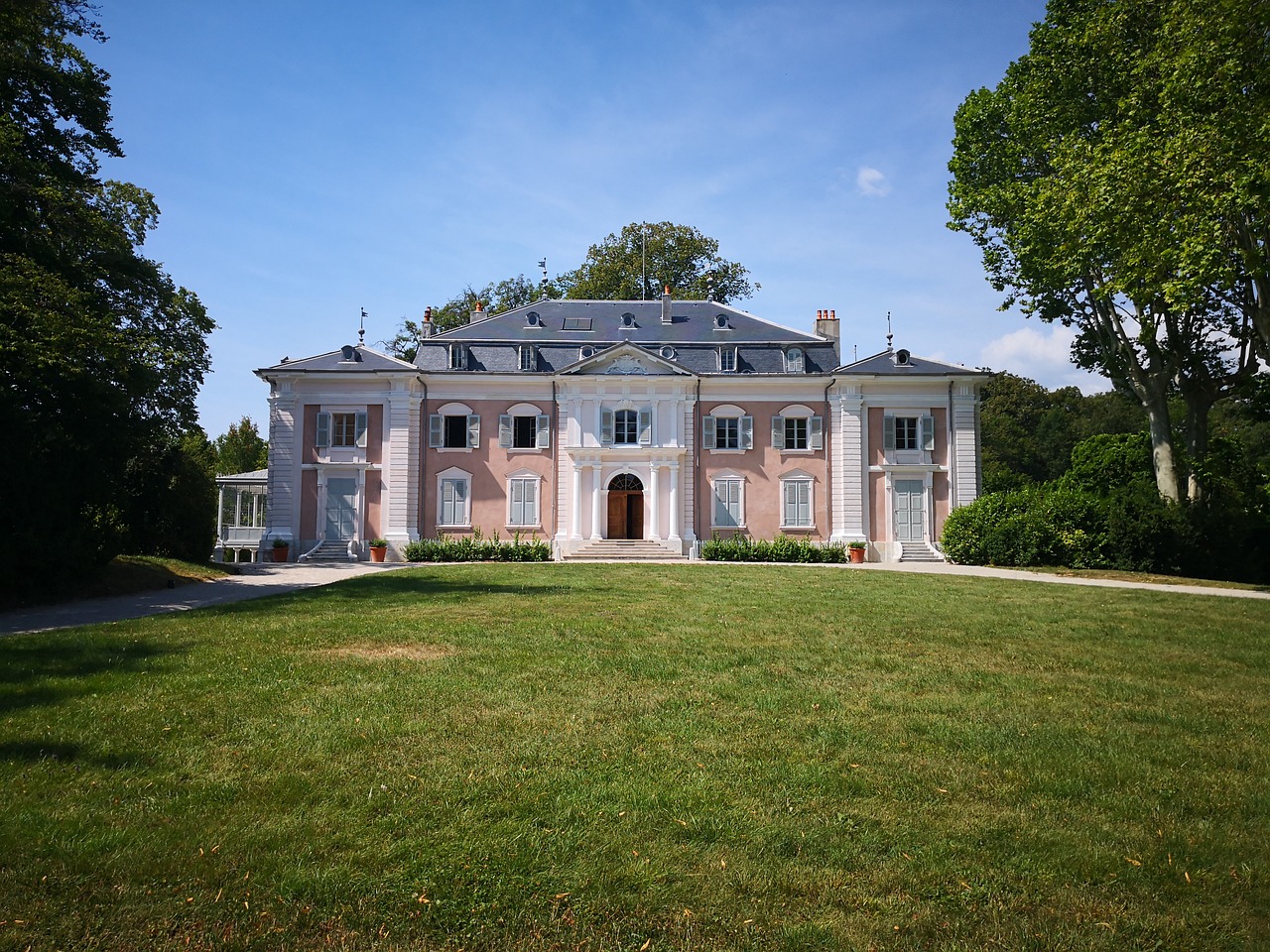
Legacy in Literature and Philosophy
Voltaire's impact on literature and philosophy is nothing short of monumental. His sharp wit and incisive critiques of society resonate through the ages, influencing countless writers and thinkers. From his satirical works like Candide to his poignant essays, Voltaire challenged the status quo and provoked thought in a way that few could. He had a unique ability to blend humor with serious philosophical inquiry, making complex ideas accessible to the masses. This approach not only entertained but also encouraged readers to question their own beliefs and the world around them.
His legacy can be seen in the way modern literature often grapples with themes of freedom, reason, and skepticism. Authors like George Orwell and Albert Camus drew inspiration from Voltaire’s fearless questioning of authority and dogma. In fact, many contemporary writers consider him a precursor to the modern novel, as his storytelling techniques and character development paved the way for future literary exploration.
In the realm of philosophy, Voltaire's emphasis on reason and empirical evidence shaped the Enlightenment era and continues to influence philosophical discourse today. His advocacy for rational thought over superstition laid the groundwork for later philosophers like Immanuel Kant and John Stuart Mill. Voltaire's insistence on the importance of critical thinking and skepticism remains a cornerstone of philosophical inquiry, encouraging individuals to challenge accepted norms and seek truth through reason.
To illustrate Voltaire's lasting influence, consider the following table that highlights some key aspects of his legacy:
| Aspect | Influence |
|---|---|
| Literary Style | Satirical wit and narrative complexity |
| Philosophical Thought | Promotion of reason and skepticism |
| Social Critique | Challenged religious and political authority |
| Modern Relevance | Continues to inspire debates on freedom of expression and rationalism |
Voltaire’s legacy is not just a relic of the past; it is a living, breathing part of our cultural and intellectual landscape. His works encourage us to engage with the world critically and to value the power of reason in shaping our beliefs and actions. As we navigate the complexities of modern life, Voltaire's insights remind us that the pursuit of knowledge and the questioning of authority are timeless endeavors.
- What was Voltaire's main contribution to philosophy?
Voltaire's main contribution was his advocacy for reason, freedom of thought, and criticism of religious dogma, which laid the groundwork for Enlightenment philosophy.
- How did Voltaire influence modern literature?
His use of satire and complex characters has influenced many modern writers, encouraging them to explore themes of freedom, reason, and social critique.
- Why is Voltaire still relevant today?
Voltaire's ideas about reason, skepticism, and the importance of questioning authority remain crucial in contemporary discussions about faith, politics, and ethics.
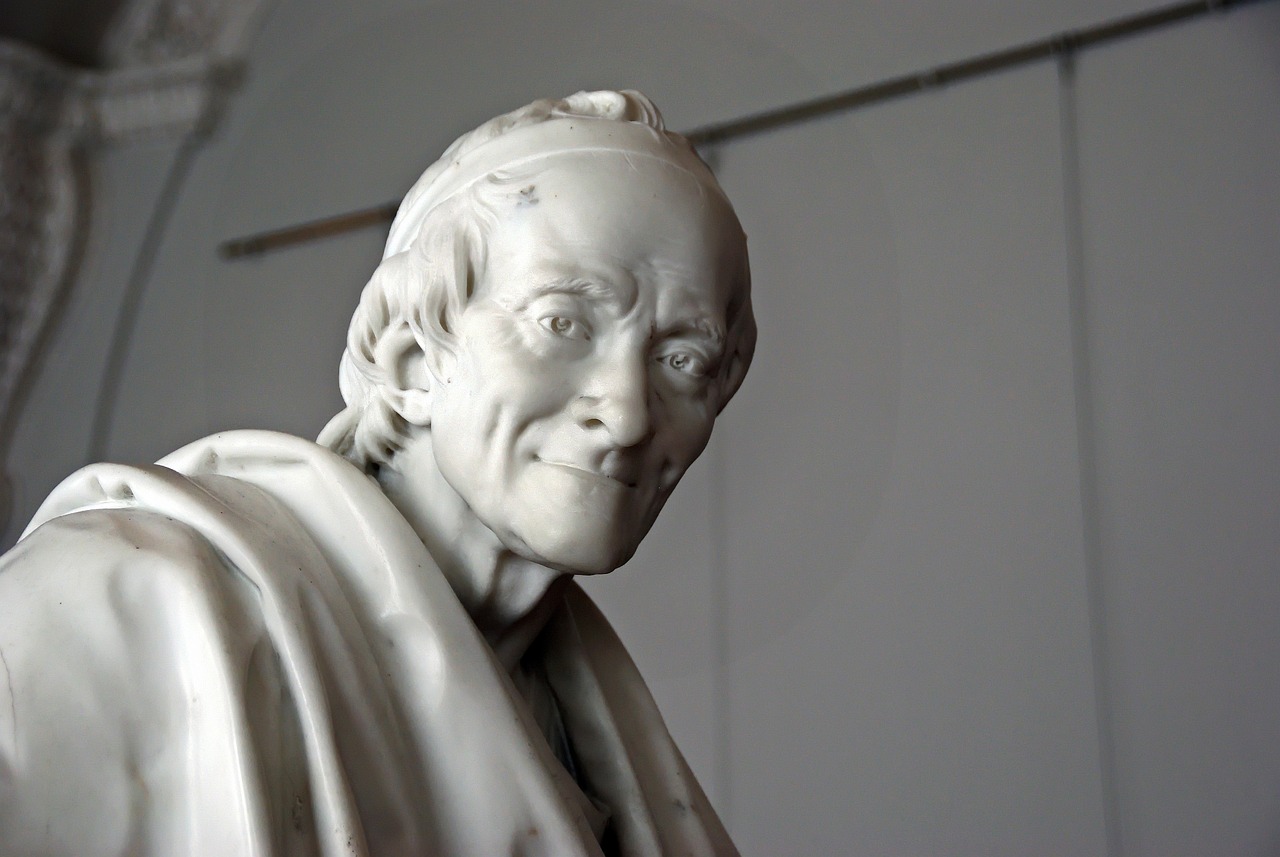
Relevance Today
Voltaire's thoughts on religion and rationalism resonate profoundly in today's society, where the tension between faith and reason remains a hot topic. In an age where we are bombarded with information, the ability to critically assess our beliefs is more crucial than ever. Just as Voltaire advocated for the questioning of dogmas, modern individuals are encouraged to scrutinize the belief systems that shape their lives. This quest for understanding often leads to a more tolerant and open-minded society, reflecting Voltaire's vision of a world where freedom of thought prevails.
Moreover, the principle of separation of church and state, which Voltaire fervently supported, continues to be a significant issue in contemporary political discourse. In many countries, the intertwining of religious beliefs and governmental policies raises questions about individual liberties and the role of reason in public decision-making. For instance, debates around issues such as abortion, same-sex marriage, and education often see religious ideologies clashing with rational arguments for human rights and equality. Voltaire's insights remind us that a society governed by reason allows for a more equitable and just framework.
Another area where Voltaire's influence is palpable is in the ongoing critique of religious hypocrisy. Today, many individuals and organizations strive to hold religious institutions accountable for their actions, echoing Voltaire's sentiments about the discrepancies between teachings and practices. This scrutiny encourages a more authentic expression of faith, urging believers to align their actions with their professed values. In a world where misinformation spreads rapidly, the call for critical thinking and reasoned discourse is essential, serving as a counterbalance to dogma and blind faith.
In essence, Voltaire's legacy is not just a relic of the past; it is a living, breathing influence that shapes our understanding of human rights, freedom of expression, and the role of reason in our lives. As we navigate the complexities of modern society, his ideas serve as a guiding light, urging us to question, explore, and engage with the world around us. The relevance of Voltaire's philosophy today is a testament to the enduring power of rational thought and the necessity of freedom of belief.
- What were Voltaire's main criticisms of religion? Voltaire criticized religious dogma for promoting intolerance and stifling intellectual growth. He believed in questioning established doctrines to foster progress.
- How did Voltaire influence modern secularism? His advocacy for the separation of church and state laid the groundwork for modern secularism, emphasizing that religious beliefs should not dictate laws or public policy.
- Why is reason important according to Voltaire? Voltaire viewed reason as the cornerstone of human progress, arguing that ethical decisions and societal norms should be guided by rational thought rather than superstition.
- Are Voltaire's ideas still relevant today? Yes, Voltaire's ideas about religion, rationalism, and freedom of thought remain pertinent as contemporary society grapples with faith, reason, and the role of belief systems in public life.
Frequently Asked Questions
- What was Voltaire's main critique of religious dogma?
Voltaire strongly criticized religious dogma, arguing that rigid beliefs hinder intellectual growth and foster intolerance. He believed that questioning established doctrines is crucial for progress and enlightenment, as it encourages critical thinking and open dialogue.
- How did Voltaire advocate for freedom of thought?
Voltaire was a staunch advocate for freedom of thought, insisting that individuals should express their beliefs without fear of persecution. This principle underpinned much of his philosophy and writings, highlighting the importance of intellectual freedom in a just society.
- What did Voltaire say about the separation of church and state?
Voltaire argued passionately for a clear separation between church and state, believing that religious institutions should not meddle in political affairs. He saw this separation as vital for protecting individual liberties and ensuring rational governance, free from religious influence.
- How did Voltaire influence modern secularism?
His ideas laid the groundwork for modern secularism, emphasizing the necessity for a society where religious beliefs do not dictate laws or public policy. This framework fosters an environment where rational discourse can thrive, free from dogmatic constraints.
- What was Voltaire's stance on religious hypocrisy?
Voltaire frequently criticized the hypocrisy within religious institutions, pointing out how they often contradicted their own teachings. This hypocrisy undermined their moral authority and credibility, leading him to advocate for a more genuine practice of faith.
- Why did Voltaire consider reason important?
For Voltaire, reason was the cornerstone of human progress. He believed that rational thought should guide ethical decisions and societal norms, challenging the reliance on superstition and blind faith, which he viewed as detrimental to human advancement.
- What impact did Voltaire have on Enlightenment thought?
Voltaire's views significantly influenced Enlightenment thinkers, promoting the idea that reason and scientific inquiry could lead to societal improvement and the advancement of human rights. His legacy continues to shape discussions around reason and rationality in contemporary society.
- Is Voltaire's relevance still felt today?
Absolutely! Voltaire's ideas about religion and rationalism remain relevant as contemporary society navigates complex issues surrounding faith, reason, and the role of belief systems in public life. His advocacy for critical thinking and freedom of thought continues to inspire debates today.





